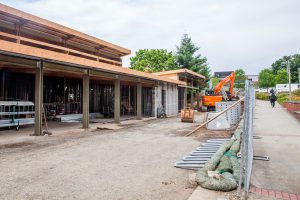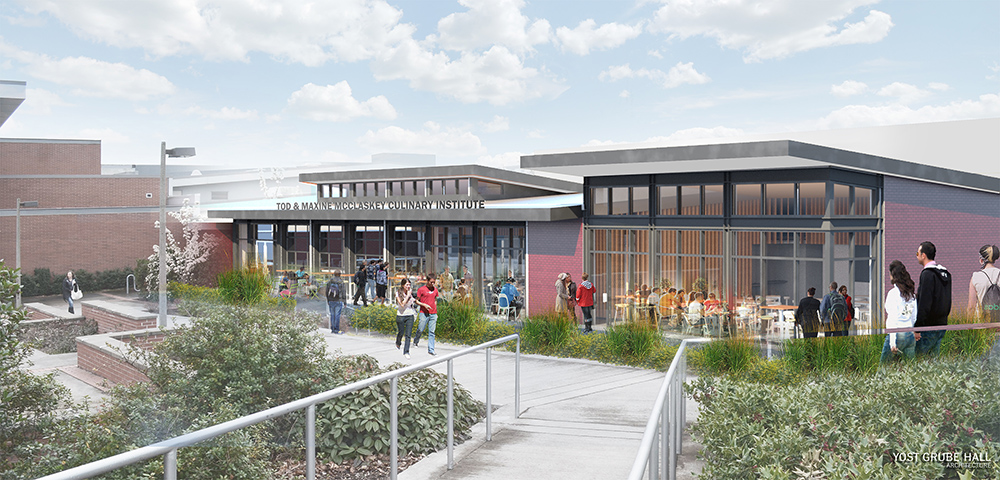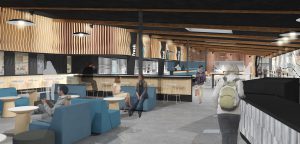Culinary faculty give college a taste of the future
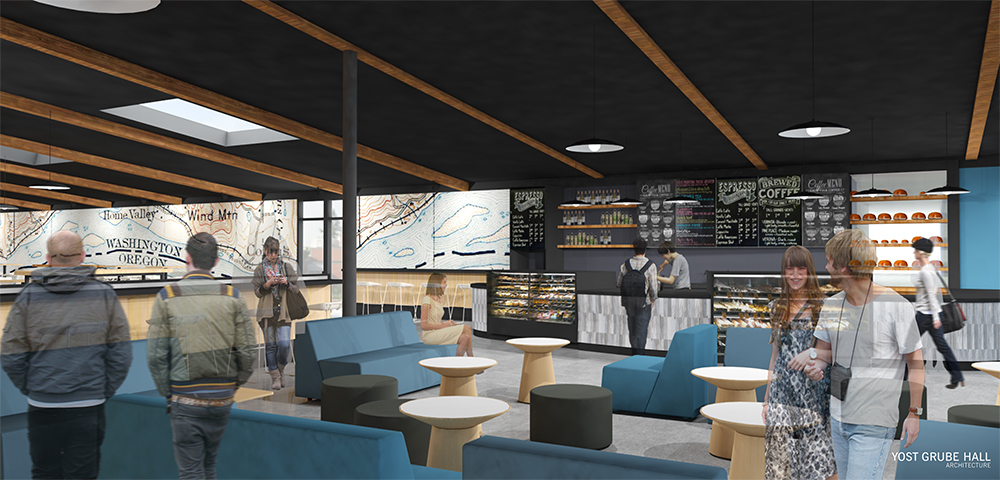
The Tod & Maxine McClaskey Culinary Institute will boast an artisanal bakery, barista station, and comfortable seating.
On May 16 and 17, faculty from Clark College’s new Cuisine Management and Baking and Pastry Arts programs answered questions from the college community about how those programs would affect Clark when they re-opened in fall 2017.
Clark’s Culinary Arts – Cooking/Restaurant Management program was put on hiatus in 2013 in order to modernize the curriculum and facilities. The Culinary Arts – Baking/Bakery Management program was put on hiatus in 2015, when it was determined that the program could not continue running while the culinary facilities were being remodeled. Thanks to fundraising efforts by Clark College Foundation, the Tod and Maxine McClaskey Culinary Institute will open in fall 2017, housing both programs as well as dining facilities for the main campus.
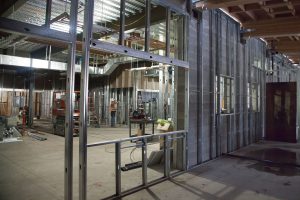
Sneak peek inside the McClaskey Culinary Institute during construction, showing the windows that will look into the baking and chocolate-production kitchens.
While existing in approximately the same location on the north side of Gaiser Hall, the new dining space will bear little resemblance to the old college cafeteria. It will feature comfortable seating, plenty of natural light from tall windows, and internal windows that look onto the Baking and Pastry Arts kitchens. Four food kiosks will serve patrons: a grab-and-go kiosk; Pacific Northwest cuisine; international fare; and a kiosk serving rotating cook-to-order items based on seasonality and curriculum that can also be used for guest chefs and lectures. Additionally, a retail bakery will serve all the treats and breads that patrons remember (plus some fun new ones) as well as coffee and espresso. Bakery students will be learning barista techniques in their curriculum, and faculty are currently working with local coffee roasters to possibly create a custom Clark College blend.
Because the dining facilities’ staff will include work-study students and a full-time manager, the kiosks will be able to serve customers during breaks and evenings, instead of adhering to the limited hours of the old cafeteria.
A full-service restaurant run by second-year Cuisine Management students will open in 2018. Faculty shared that, in addition to working with farmers to source food locally when possible, the institute will offer special seasonally themed foods and international cuisine.
The kitchen side of the facility is also being significantly re-imagined and modernized to improve efficiency and to give students a better understanding of modern work environments in their fields. The new facilities were designed with significant input from the faculty and staff who will be working in them, including Bakery and Pastry Arts professor Alison Dolder, Cuisine lead instructor Earl Frederick, Cuisine professor Aaron Guerra, and Cuisine instructor Daryl Oest.
During one of the open forums, Dolder said that she is already exploring options for partnering with the Penguin Pantry, an on-campus food pantry scheduled to open this summer to serve food-insecure students. A similar idea on the table is to create a “pay it forward” system where patrons could pay for vouchers for drinks and snacks that could be distributed to students through the Penguin Pantry—something that will be much easier to do since the new dining area, unlike the old cafeteria, will be fully computerized and able to accept credit cards.
Employee climate surveys have routinely registered dissatisfaction with the dining options on campus. Genevieve Howard, Dean of Workforce, Professional and Technical Education, said that the McClaskey Institute would provide the campus with the food service employees have been asking for. “We heard you loud and clear,” she said.
Photos: Clark College/Jenny Shadley
Architectural drawing: Yost Grube Hall
